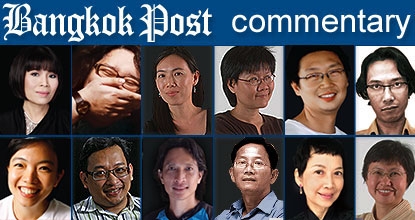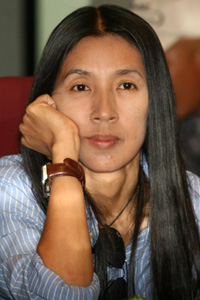
Six months after the National Council for Peace and Order (NCPO) seized power, speculation is growing over a plan by the men in green to form a new political party, or perhaps a nominee party with military backing.

Some believe the military plans to form its own political party to ensure it still has a hand in the game after the next poll. All prime minister Gen Prayut Chan-o-cha will say about it is, “Don’t fantasise.”
The speculation lingers on even though Prime Minister Gen Prayut Chan-o-cha has repeatedly denied he has any interest in politics.
"I have never thought of forming a party, nor do I want to play politics. I am tired," the prime minister told reporters curious about his plans.
But that can hardly avert public perception that the NCPO wants to uproot the influence of the Pheu Thai Party at the polls.
The coup-installed National Legislative Assembly (NLA) has moved to impeach former prime minister Yingluck Shinawatra over the rice scheme.
It even tried to penalise her further for the transfer of National Security Council chief Thawil Pliensri, which was ruled unconstitutional by the Constitutional Court.
If impeached, Yingluck would be banned from politics for five years, and would not be able to make a comeback as prime minister even if the Pheu Thai Party wins the elections.
Yet when journalists have asked whether the military plans to take this push further by setting up a party for the next election, Gen Prayut always denies any broader intent with the brief response: "Don't fantasise."
Gen Prayut and the NCPO have never really cornered fugitive former leader Thaksin Shinawatra. They said only that the deposed leader should come back and fight his case in court.
He also denied talk of backdoor deals with the former leader.
Reports about possible dealings with Thaksin emerged a few weeks ago when Deputy Prime Minister and Defence Minister Gen Prawit Wongsuwon travelled to China while Thaksin was also there.
Political observers, however, say Gen Prawit and Thaksin have a special bond dating back to when Thaksin made Gen Prawit army chief and sidelined the incumbent — his blood brother, Gen Chaiyasit Shinawatra — to the toothless position of supreme commander before his mandatory retirement.
Gen Prawit is particularly close to Thaksin's ex-wife Khunying Pojamarn.
His image as a figure who is accepted by both political camps may explain why his name came up as a candidate for prime minister of an interim government as Thailand plunged into crisis over the Suthep Thaugsuban-led street battles against the Yingluck government.
Now, observers are keeping a close watch on the charter drafting process, under the chairmanship of Borwornsak Uwanno, to see if the NCPO issues orders for a Thai-style democracy — in particular, to see if the new charter will set electoral rules containing a "no-Thaksin" agenda.
If the rumours the military will create its own party are untrue, it still may use its connections in certain parties to maintain its role in politics.
Some people in the military believe the Democrat Party will never win the next election, so the military might have to step in, or at least throw its support behind a party to challenge Pheu Thai.
Once again, the spotlight falls on Gen Prawit because of his wide political connections.
Military parties have been set up following coups before.
The Samakki Tham party of the late ACM Kaset Rojananil won post-coup elections in 1991 and formed a government with Gen Suchinda Kraprayoon as its head. That political chapter ended with the 1992 May uprising.
In more recent times, Gen Sonthi Boonyaratglin, who toppled Thaksin in a coup in 2006, formed the Matubhum Party.
Some believe the regime which came to power in the May 22 coup might throw its support behind the Bhumjaithai Party, which has connections with Gen Prawit.
However, there's also talk that a new party of reconciliation will be formed.
This party would comprise representatives from all parties, such as Anutin Charnveerakul from the Bhumjaithai Party.
Other key figures who could join include Newin Chidchob and Khunying Sudarat Keyuraphan, who is close to NLA member Gen Noppadon Intapanya, a close friend of Gen Prawit.
Some Democrat politicians, especially those in the Suthep Thaugsuban camp, may also take part. Mr Suthep, who is now in the monkhood, maintains good relations with the powerful "3Ps" — Gen Prawit, Gen Anupong and Gen Prayut.
Reports the military will set up its own party cannot be confirmed.
It's possible that some politicians or soldiers in the NCPO are merely making their own moves. Gen Prawit, for his part, denies the speculation.
He said he had never thought of playing politics. He says he is helping the regime this time for the sake of the country and because Gen Prayut asked him to step forward.
Even though Gen Prawit has never admitted to political ambitions, some soldiers in the NCPO may want him to maintain a role in post-coup politics.
They believe the country needs a political party that is accepted by all colour-coded factions to forge reconciliation for a country in transition.
Despite his denials, it is believed the general may have to accept a political role.
Before long, we will know if a military party or a nominee party with support from the men in green is for real.
Wassana Nanuam is a senior news reporter covering military affairs for the Bangkok Post.
